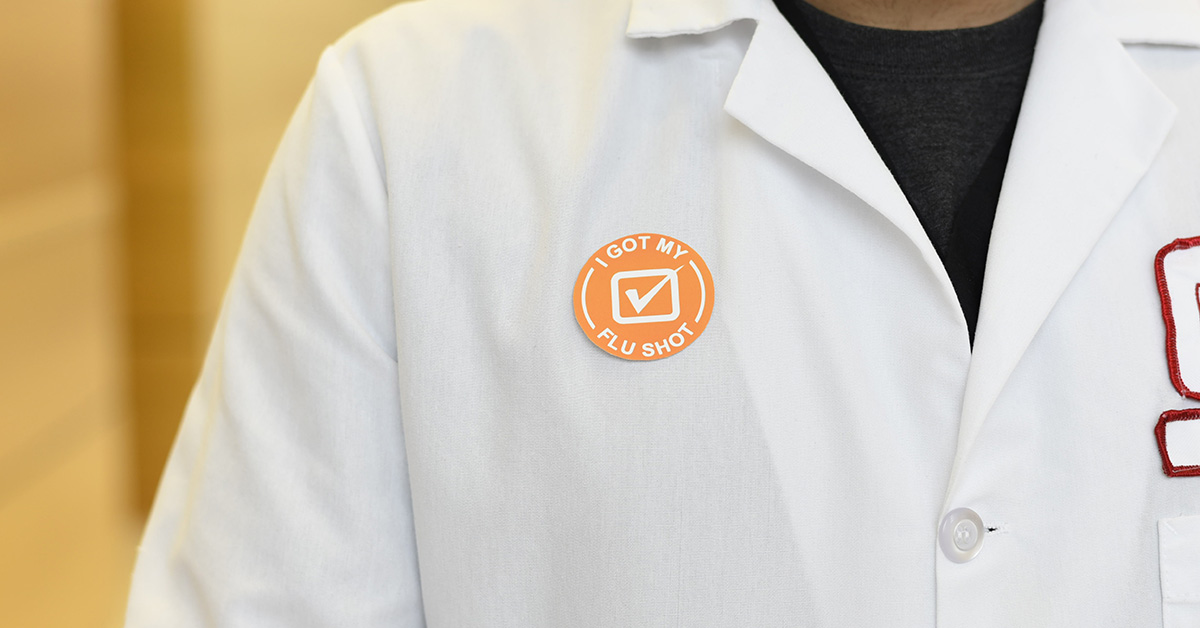
Flu Shots for Cancer Patients: Seven Fast Facts
-
Updated December 8, 2021
Everyday tasks can fall to the wayside when a family is dealing with cancer. But there is one must-do that needs to stay on everyone’s radar: flu shots. Here are seven things to keep in mind.
1. Most people who’ve had cancer should get a flu shot. With a few possible exceptions, it is important that cancer patients and survivors get a yearly flu shot.
Certain patients who’ve had a previous bone marrow transplant or who are on some high-dose chemotherapy regimens may need to avoid getting the vaccine. This is a conversation you should have with your oncologist.
2. A specific kind of flu vaccine is best for cancer patients and survivors. There are two kinds of influenza vaccines: a live vaccine and an inactive vaccine. People who have cancer should get the inactive vaccine. It’s made of an inactive, or dead, virus and is given as an injection.
The live vaccine is given as a nasal spray. It’s recommended that people with cancer, whose immune systems may be suppressed, avoid this live intranasal vaccine.
3. In general, the flu shot isn’t dangerous for people with cancer. It is a common misconception that the flu vaccine can give you the flu. Flu shots for people with cancer are usually made from an inactive virus, so they cannot transmit the illness. People who get a flu shot sometimes have side effects—like a headache, fever, muscle aches, or fatigue—that can resemble flu symptoms. However, if these symptoms develop after a flu shot, they usually do not last long—and they are mild compared to the flu.
4. Because flu viruses change, vaccinations should be given annually. The influenza vaccine gets updated every year to fight the flu virus strains that are most likely to cause illness at that time. Flu vaccines wear off over time, too. So, annual vaccines are needed for up-to-date protection.
The ideal time to get a flu vaccine is around September or October, before flu season starts. But it’s okay to get vaccinated anytime during flu season. Ask your doctor when it’s best for you to get the flu vaccine. Typically, vaccine providers include doctor’s offices, pharmacies, and health departments.
5. Friends and family of cancer patients also need the flu vaccine. One of the big problems with the flu is that it’s highly contagious. Flu viruses most commonly spread through respiratory droplets released into the air when a person coughs, sneezes, or even talks.
People with cancer often have suppressed immune systems, so it’s especially important for them to avoid exposure to flu viruses. Since the flu vaccine reduces the risk of getting the flu but doesn’t totally prevent it, it’s important for friends and loved ones of cancer patients to also get vaccinated. That provides one more layer of flu prevention for people with cancer.
6. Cancer patients are at a higher risk—but maybe not for flu infection. We don’t know if people who have or have had cancer are likelier to catch the flu. But they are at higher risk for serious complications, such as pneumonia, if they do get the flu.
7. Antivirals may help if cancer patients get the flu, and they may prevent the flu in some patients. Antiviral medications can help shorten the duration of the flu if taken within 48 hours of getting flu symptoms. These medications can also help prevent the flu in some cancer patients. They should contact their oncologist immediately if they have been in close contact with someone who has the flu.
Your care team is always a resource if you have any questions at all about receiving the flu shot. Make sure that you and those around you are prepared this fall and winter!
Also read: 6 Tips for Avoiding Infections This Winter
